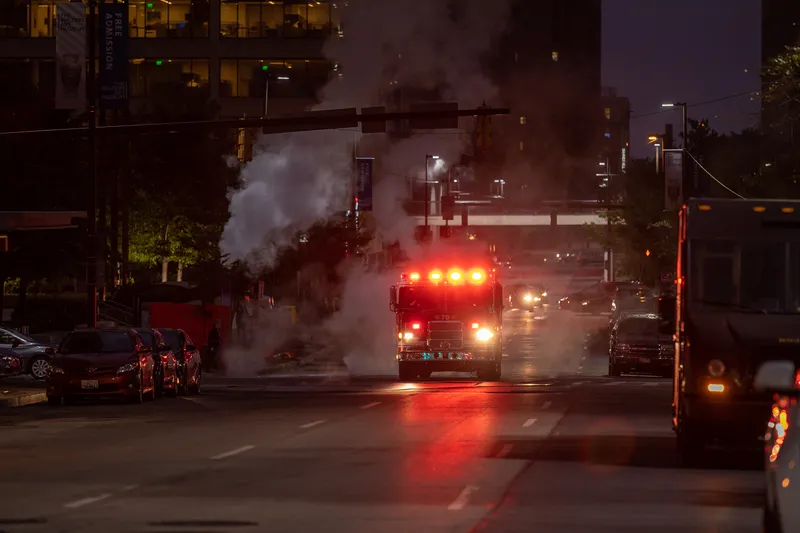A joint team from the Universities of Texas, Wyoming and Kansas has won the first Transportation Technology Tournament organised by the Institute of Transportation Engineers (ITE). The winning project set out to address what it called “non-recurrent congestion challenges” in Washington, DC, such as increased traffic on days when the Washington Nationals baseball team played at home. The team worked with the District Department of Transportation (DoT) to develop real-time traveller information systems to
August 28, 2018
Read time: 2 mins
A joint team from the Universities of Texas, Wyoming and Kansas has won the first Transportation Technology Tournament. The event was hosted at the 5667 Institute of Transportation Engineers’ (ITE) annual meeting and exhibit in downtown Minneapolis.
The winning project set out to address what it called “non-recurrent congestion challenges” in Washington, DC, such as increased traffic on days when the Washington Nationals baseball team played at home. The team worked with the2134 District Department of Transportation (DoT) to develop real-time traveller information systems to give drivers more accurate travel times and alternative routes.
In second place, the judges chose Cal Poly – San Luis Obispo, California Polytechnic State University, for its work on pedestrian safety with the City of Detroit and the1687 Michigan DoT.
North Dakota State University was also a finalist for working with the City of Moorhead, Minnesota, in providing train information near highway rail grade crossings.
Florida International University was also shortlisted for working on pedestrian safety in collaboration with the City of Gainesville, Florida.
The winner was announced at ITE’s Annual Meeting and Exhibit in Minneapolis. The tournament was organised by the National Operations Center of Excellence (NOCoE) and the US DoT. The four finalists were chosen from nine participating teams working with a local or state DoT to implement ITS technologies and transportation systems management and operations (TSMO) strategies.
The teams pitched their solutions to five judges which included Egan Smith, managing director, ITS joint program officer, US DoT and Arlene Kocher, division administrator,831 Federal Highway Administration, US DoT.
After the presentations, the judges put forward questions to each team, which prompted them to elaborate on their innovations, consider alternative strategies and provide answers around procurement and the cost of their products.
All participants will now take part in local and regional meetings and discuss their proposals. In addition, the NOCoE intends to facilitate an additional discussion around the solutions with state and local agencies, industry leaders and potential deployers of ITS and TSMO solutions.
The winning project set out to address what it called “non-recurrent congestion challenges” in Washington, DC, such as increased traffic on days when the Washington Nationals baseball team played at home. The team worked with the
In second place, the judges chose Cal Poly – San Luis Obispo, California Polytechnic State University, for its work on pedestrian safety with the City of Detroit and the
North Dakota State University was also a finalist for working with the City of Moorhead, Minnesota, in providing train information near highway rail grade crossings.
Florida International University was also shortlisted for working on pedestrian safety in collaboration with the City of Gainesville, Florida.
The winner was announced at ITE’s Annual Meeting and Exhibit in Minneapolis. The tournament was organised by the National Operations Center of Excellence (NOCoE) and the US DoT. The four finalists were chosen from nine participating teams working with a local or state DoT to implement ITS technologies and transportation systems management and operations (TSMO) strategies.
The teams pitched their solutions to five judges which included Egan Smith, managing director, ITS joint program officer, US DoT and Arlene Kocher, division administrator,
After the presentations, the judges put forward questions to each team, which prompted them to elaborate on their innovations, consider alternative strategies and provide answers around procurement and the cost of their products.
All participants will now take part in local and regional meetings and discuss their proposals. In addition, the NOCoE intends to facilitate an additional discussion around the solutions with state and local agencies, industry leaders and potential deployers of ITS and TSMO solutions.








